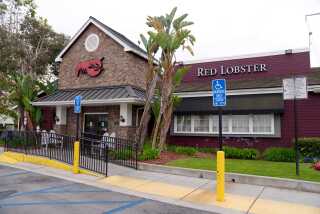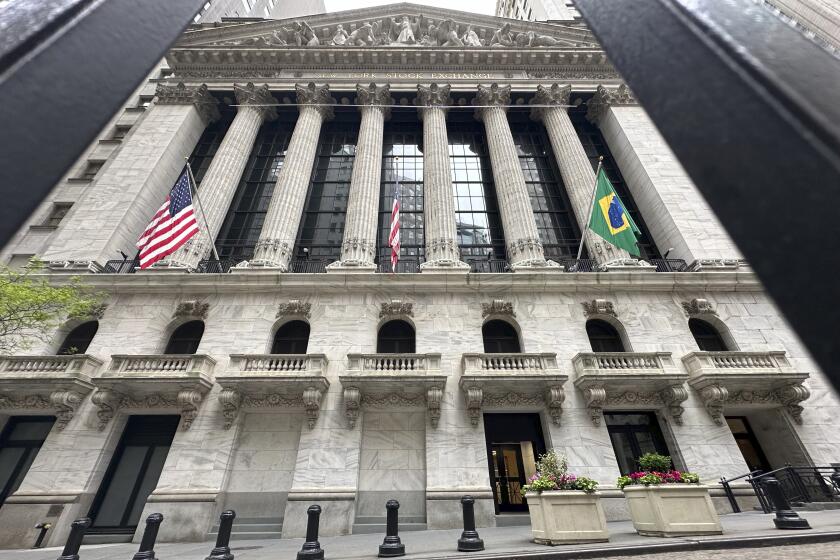Older Workers Fret Over Jobs in a Slower Economy
Richard Krantz operated a successful video production company for 14 years, but now he’s looking for a journalism job.
Krantz, 60, an award-winning former newspaper and television reporter, said he became tired of running his own business and longed for the camaraderie of the newsroom and the comfort of a steady paycheck.
But several months into his search, Krantz has had few responses. He wonders if his age has anything to do with it.
“No matter how good you were in the past, the question becomes ‘How good are you now?’ Your potential employer doesn’t know, and in some ways even you don’t know,” said Krantz, of Columbia, Md. “It’s very scary. You’re very much fighting the fear of rejection.”
There’s no question that older workers have been helped by the longest economic expansion in U.S. history. The booming economy had companies scrambling to find employees, and they were more than willing to consider older ones.
In 1992, with the country emerging from a recession, the unemployment rate for workers 55 and older was 4.8%. It has declined every year since, to 2.6% last year, according to the federal Labor Department.
But now that the economy has cooled, some advocates for the elderly worry that older workers may soon encounter difficulty finding or keeping jobs.
And they question whether stereotypes about older workers have really melted away, or whether the upswing in hiring was due to tight labor markets. The unsettled economy could provide some answers, but experts are divided over the effect it will have on the older work force.
“In a time when we are perhaps leading into a recession, older workers are going to be the hardest hit,” said Deborah Russell, who studies work force issues for the American Assn. of Retired Persons. The group maintains age discrimination is alive and well despite gains of the last several years.
Advocates say some employers still view older workers as frail, unmotivated and set in their ways. And during an economic downturn, employers are often reluctant to hire or keep older workers because those workers are perceived as more expensive than younger ones, career counselor Ben Shuster said.
“It’s a false assumption. It’s probably ultimately more expensive to train somebody to a level of competence than to take someone with experience,” said Shuster, a board member of Forty Plus of Philadelphia Inc., a nonprofit counseling organization for professionals over 40.
But other labor experts say that employers have become much more receptive to the strengths of mature workers. Bill Perdue, another career counselor, says hiring executives have found older adults to be loyal and reliable.
“So even if the economy gets worse, we don’t think the effect on the older worker is going to be disproportionate to the younger worker,” said Perdue, a staffing specialist at Experience Works, a nationwide staffing service for older adults.
Margaret McCaul, 59, was laid off in November from her job as an administrator for a mortgage company.
She was a bit jittery about the search for a new one.
“It was the idea of going to a new job and not knowing how things were done, or the background of the company,” she said. She also worried that potential employers might not be able to see past her age.
It turns out she had nothing to worry about. McCaul, from Cherry Hill, N.J., quickly landed work at a company that places human resources executives.
“The biggest plus on my resume was being in school,” said McCaul, who is pursuing a master’s degree in psychology.
“It seemed a sure signal that I could learn, was able to change environments.”
A demonstrated ability to change and grow can help prospective employees overcome any reservations an employer might have, according to career counselor Deb Koen.
“It’s likely that an individual may be moving into a very dynamic work environment in which goals change regularly, management changes, and the ability to deal positively with that kind of change is a marketable quality,” she said.
Krantz, the businessman hoping to resurrect his career as a journalist, remains optimistic despite nagging doubts that he is no longer considered a “prime prospect.”
“You would think there would be a place for me somewhere, and there probably is,” he said. “I just haven’t come across it yet.”






